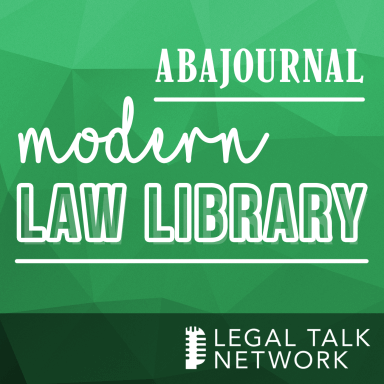Paul Golden is a New York litigator, and a partner in the firm Coffey Modica LLP’s Manhattan...
Lee Rawles joined the ABA Journal in 2010 as a web producer. She has also worked for...
| Published: | July 12, 2023 |
| Podcast: | ABA Journal: Modern Law Library |
| Category: | Legal Entertainment |
In this episode of the Modern Law Library, Golden explains the concept of a constructive trust to the ABA Journal’s Lee Rawles. A constructive trust is a “legal fiction,” where (broadly speaking) a judge decides that between two parties with a relationship where trust could be assumed, there has been an egregious betrayal of that trust and an unjust enrichment to the betrayer. The judge can then retroactively declare that even without a written contract, a defendant had a fiduciary duty to the victim, and victim’s property must be returned to them.
“Traitorous partners, gold-digging girlfriends, old ladies being tricked out of preparing a fair will, and plain old murder,” writes Golden in the book. “These have been, and will continue to be, the subjects of constructive trusts. The facts in some constructive trust cases are so outrageous, one often feels like a voyeur, but without the shame.”
Golden explains the special benefits of a constructive trust, as well as defenses that can be made if your client is the subject of a constructive trust claim. Different jurisdictions have different standards for constructive trusts, and Golden and Rawles discuss the state of New York’s 4-prong test in detail. Most constructive trusts are based on case law, but some states do have civil code about them. Golden offers advice to lawyers looking to use a constructive trust argument, and lists common trial issues they might face, including how to convince a judge they have the power to act to avert a deep injustice from continuing.
Special thanks to our sponsor ABA Journal.
Notify me when there’s a new episode!

|
ABA Journal: Modern Law Library |
ABA Journal: Modern Law Library features top legal authors and their works.